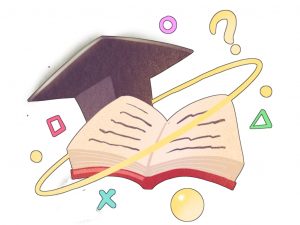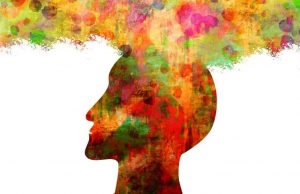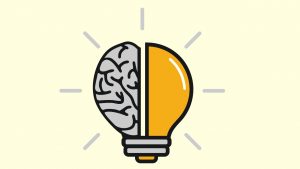Relationship Between Philosophy And Education: Philosophy and Education are two distinct disciplines which are closely related and shares a deep relationship with each other. In this Article i shall examine this close relationship which Education and Philosophy shares and the respective meaning of both terms.
Recommended: Relationship between Law and Political science
Definition of Philosophy
The term Philosophy originates from the Greek term “Philosophia” , “Philo” meaning “Love” and “Sophia” meaning “Wisdom” . Philosophy is therefore the Love of Wisdom. Philosophy can be broadly defined as the study of the nature and meaning of the Universe, human life, reality and human existence. Philosophy is regarded as a Mental activity as it seeks to obtain fundamental truth through reasoning and critical enquires.

Philosophy may also be defined as the rational, systematic, abstract, methodological and logical investigation of questions about existence, reason, knowledge, values and ethics. Philosophy is divided into various branches.
Recommended: Relationship between psychology and sociology
Branches of Philosophy
a. Epistemology: Epistemology is derived from two words ‘epistle’ meaning Knowledge and ‘Logy’ meaning the study of things. Epistemology is therefore the study of knowledge and it is widely defined as the branch of Philosophy which deals with the study of the nature, scope and origin of knowledge and it addresses philosophical questions about knowledge.
b. Logic: Logic is a branch of Philosophy which inquires into the nature and philosophical implications of concepts of logic. It seeks to structure statements and arguments through the study of formal inference and arguments. Logic is the study of reasoning and it addresses philosophical questions about reason and argumentation.
c. Metaphysics: Metaphysics is the oldest branch of Philosophy. It addresses philosophical questions about reality, being and it also seeks to answer questions about the physical or material world and the existence of things in the world.
Also see: Advantages and Disadvantages of Being an Entrepreneur
d. Axiology: Axiology is the branch of philosophy which deals with the study of value, goodness, ethics and worthiness. Axiology therefore has two major components namely: Aesthetics and Ethics.
Aesthetics is a component of axiology which addresses philosophical questions about Art, Taste, beauty and value. While Ethics is another component of axiology which is concerned with what is right or wrong. Ethics also studies and addresses philosophical questions about morality and ethical standards of individuals or culture.
Recommended: Countries with the Most Nuclear Weapons
Meaning of Education
Education is the process of undergoing teaching, training and learning in order to improve your knowledge and to develop skills. Education may also be defined as the act of imparting or acquiring general knowledge, developing the powers of reasoning and attaining a kind of schooling or academic training.

Education is usually received in an academic environment and there are various kinds of education, namely: Pre-Primary Education, Primary Education, Secondary Education, Vocational training, Tertiary education and further education.
The above defined terms ‘Philosophy‘ and ‘education‘ slightly differs in that Philosophy deals with the study of nature, reality, and human existence, while Education deals with the process of learning and imparting knowledge on younger people. Notably, Philosophy deals with abstract knowledge while Education deals with concrete knowledge and Philosophy is a contemplative process whereas Education is an active process.
Irrespective of these differences, the terms ‘Philosophy’ and ‘education’ shares a close relationship with each other. Let’s therefore examine this relationship.
Recommended: Richest Presidents in the World and their Networth 2022: Top 10
Relationship Between Philosophy And Education
1. Both Education and Philosophy are dynamic: This means that both are not static and are always changing. Education on one hand develops a person according to the changing conditions and it impacts knowledge tailored towards the changing needs of the society. Philosophy on the same hand deals with ideas, ever changing opinions of philosophers, the varying philosophical views and a dialectical process of analyzing the various Philosophical ideas.

2. Education is the dynamic side of Philosophy: This means that Education is the practical side of Philosophy as every Philosophical thoughts is put into practice by education and these findings of knowledge, belief and wisdom by Philosophers are transmitted to younger generations through education.
3. Philosophers are Educationists as both Philosophy and Education are two sides of the same coin which is based on Wisdom, Ideology and Critical enquiry. Thus, people who are Philosophers naturally becomes an Educationist.

Also see: Advantages and Disadvantages of Being an Employee
4. Education is dependent on Philosophy as Philosophy influences how we feel towards Education and Education is also the practical means of expressing a Philosophical idea.
5. Philosophy is incorporated into Education as in all Educational curriculum in the world, Philosophy is being taught either directly or indirectly, and Philosophy has now even become a special study on its own; known as Philosophy of Education or Educational Philosophy. This Study is an applied or practical Philosophy which investigates into the nature of education, aims of education and Philosophical problems arising from Educational theories and practices.
6. Philosophy greatly influences the choice of educational materials or textbook as most of these textbooks contains Philosophical enquires, report of a finding and all. Additionally, these Academic materials mirrors the Philosophy of people. For instance, a textbook may contain contents about Culture, ideals of democracy, and more which reflects the nature, way of life, belief and Philosophical ideology of people.

Also see: How To Become a Professional Photographer: 10 Tips
7. Both Education and Philosophy involves Theory and Philosophy makes a student smarter, broad-minded and hungry for knowledge.
8. Philosophy determines various aspects of education such as Educational curriculum, discipline, textbooks, materials, et cetera.
9. Philosophy gives ideas and Education works out these ideas given by Philosophy.
10. Education cannot effectively function without Philosophy and vice versa. Both Education and Philosophy therefore depends on each other.

Recommended: Differences Between Religion And Morality
I trust we can now agree that both Philosophy and Education are closely related as they share alot in common and they effectively act as a means to an end for each other. Hope this Article was insightful? For more informative Articles, kindly stay glued to this blog.

Edeh Samuel Chukwuemeka, ACMC, is a lawyer and a certified mediator/conciliator in Nigeria. He is also a developer with knowledge in various programming languages. Samuel is determined to leverage his skills in technology, SEO, and legal practice to revolutionize the legal profession worldwide by creating web and mobile applications that simplify legal research. Sam is also passionate about educating and providing valuable information to people.